Ending Extreme Poverty - One Village at a Time
One of the most important things that we, in international education, can do to change the world is to help others. Because we travel, live, and learn around the world, we have a unique chance to be change agents for those who need it. I have been so very impressed with one organization, Agros International, that is working on ending extreme rural poverty. We've featured Agros International here on WanderingEducators before, as part of a story about SalaamGarage, which leads adventures that collaborate with International NGOs with the goal to cause change through creating and sharing intentional content. I was so very impressed with Agros International that I contacted Sean Dimond, Director of Marketing and Communications at Agros. He was happy to share all that Agros is doing with our readers, and I was fascinated at this extraordinary project. We were lucky enough to sit down with Sean and talk about poverty, international development, and more. Here's what he had to say...
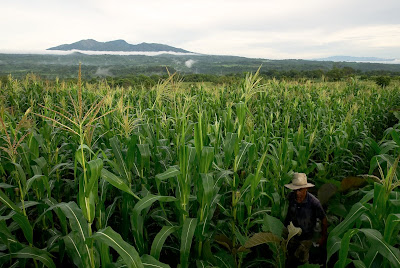
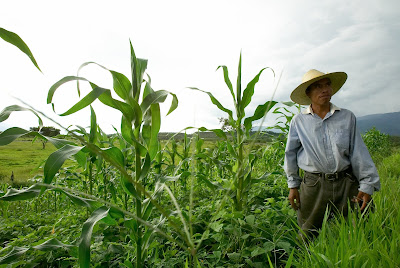
WE: Please tell us about Agros International...
SD: Today, literally half of the people on our planet live on $2.50 per day or less. The vast majority of those families live in rural areas, dependent on farmable land for income, security, and survival. A significant majority of those families do not have ownership or a secure stake in the land they depend on.
In our hemisphere, the poorest countries are in Central America, where approximately 65% of the population lives in extreme poverty. The majority of these families live in rural areas, and are landless. Landlessness is one of the most important indicators of extreme, rural poverty.
Agros exists to empower rural, poor families throughout Central America and Mexico to literally work their way out of extreme poverty, with dignity. We do this by providing communities with long-term credit for land purchase, holistic community development, and agricultural business training. By partnering with Agros, families are able to start, develop, and eventually own a thriving, economically sustainable village.
In a nutshell, Agros exists to end rural poverty in this region - one village at a time. With almost 40 village projects across five countries, the work of Agros is enabling thousands of men, women, and children to work and achieve the dream of a future free of crushing, long-term, extreme poverty.
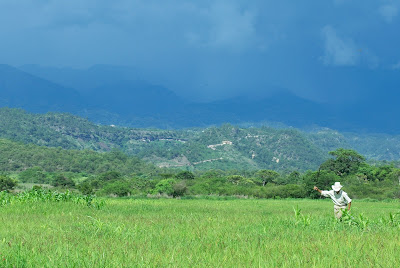
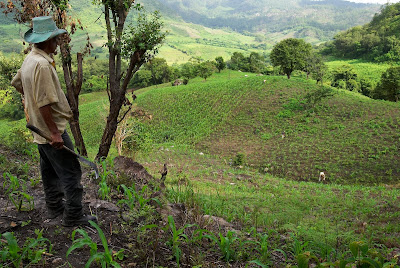
WE: What was the genesis of Agros?
SD: In 1982 Skip Li, a local Seattle attorney, was attending a conference and he heard a speaker casually mention a news article from the morning paper. The article was about the millions of dollars the United States was spending on covert military activity in the civil wars raging throughout Central America. This speaker made the comment that if you used that money to buy land for the rural poor, the wars might cease.
Skip couldn't sleep that night. A few months later he was on a plane, flying into Guatemala. Skip was the son of a Chinese diplomat and had spent time growing up in both Colombia and Guatemala, witnessing extreme poverty in these countries on a daily basis.
The burning question that caused Skip to fly into a raging Guatemalan civil war was this -- could you buy land privately and loan it to small communities of landless farmers until they secured the resources to purchase it? Could this be an effective means to ending poverty? That question launched Agros into existence.
Twenty-five years later, Agros has helped thousand of people across Central America and Mexico start and own economically sustainable villages. Rural families beat down by war, natural disaster, lack of access to basic services, racism, and extreme poverty are today building new lives for themselves.
Landless families are not only able to achieve the dream of having their own land to call home, to use as a means for food security, to create thriving agricultural businesses -- they are also developing assets that they can pass down to future generations.
The exciting thing is that this transformation occurs because the people we work with have the ability to do it themselves -- they simply need the support and training to make it happen. In this way, Agros is not merely providing a hand-out, but a hand-up. We not only teach people "how to fish", but we enable them to also own the pond.
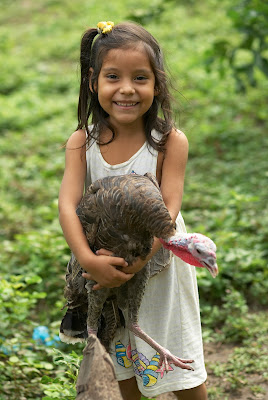
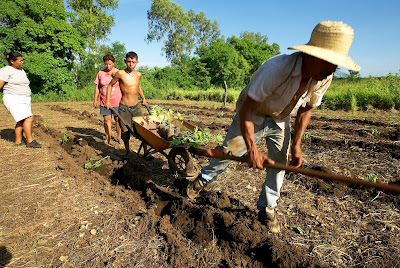
WE: So much of international development work seems ineffectual, or top-heavy. How is Agros working to be different?
SD: Argos addresses the root, systemic causes of poverty. We also use a somewhat unique definition of poverty -- we define poverty as 'broken relationships'. And I do not mean this in a Hallmark greeting card sense.
For the rural poor, all of the fundamental connections that make up a sustainable way of life are damaged or destroyed. Families are broken apart through migration; relationships with local municipalities are often broken; complex environmental and cultural systems break down; on and on... so many of the critical relationships that determine the health of a community are destroyed by extreme poverty.
Further, the causes and solutions to extreme poverty cannot be effectively reduced to just the individual or family level. Instead, economic, cultural, social and personal factors all play into establishing generational cycles of poverty that extend across communities.
Agros has learned over the years that restoring all of the aspects that make up a healthy community is required to ensure economic sustainability. A holistic understanding of people leads us to a holistic understanding of human transformation. There is much more to alleviating poverty than technological change, increased income, or the improvement of merely material well-being.
For Agros, we've learned that if you really want to get at the root issues of poverty in a way that makes a lasting difference -- a difference that offers new hope and opportunity for generations to come -- you've got to approach these issues holistically.
A holistic model of development requires a connection between the various parts of the whole. In other words, we work to create a context where rural families themselves are, over time, empowered to restore the various relationships that break down in extreme poverty.
We do this by using a participatory, values-based approach. When we work with a new group of families, rather than do a traditional 'needs assessment', we start with the assumption that their needs are self-evident, and a more powerful place to start is by having the families identify and name their assets, their values, their dreams.
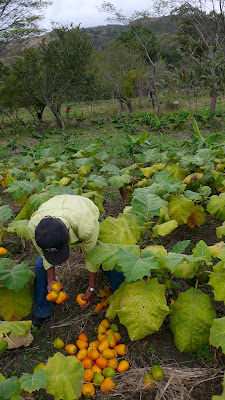
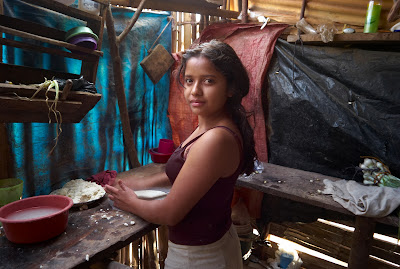
Living in extreme poverty has for many destroyed the basic human ability to
dream of a new and better future. We want families to dream again, and not
only to dream... but to be empowered to make those dreams reality.
We also realize that there is no magic bullet or single answer to alleviating poverty. This is tough, difficult work. Many people here in North America are familiar with the devastating poverty statistics that exist - but you cannot reduce these issues to mere numbers. We're talking about real people who are complex and multi-faceted and full of enormous potential.

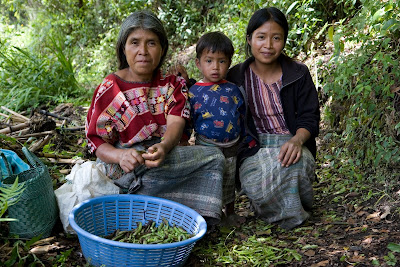
WE: How can a sustainable approach work with so many different cultural
factors? Are there intercultural differences that you need to take into
consideration with each project?
SD: Absolutely. We have a highly effective, five-component development model, but we realize that this model needs to be contextualized within a given community dynamic. We do not have a 'cookie-cutter' approach. At the end of the day, our work is only successful if the families themselves are able to create a better life for themselves. We'll provide the access to
long-term credit, support, training, basic infrastructure, encouragement...
but the families have to do the work themselves, and they each have to bring
their concerns, hopes, and unique context to the process.
Further, we work with a culturally diverse array of families. We work with
indigenous Mayan communities in the highlands of Guatemala; rural
'campesinos' in Nicaragua; refugee communities in Chiapas, Mexico; and so
on. In each case, a holistic approach creates the setting where the unique
values, dreams, and aspirations of each family is taken into account.
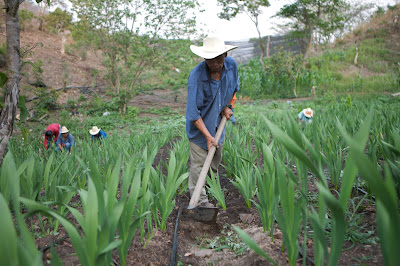
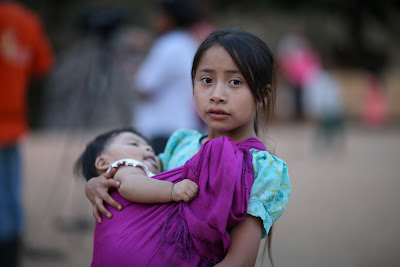
WE: How can people help Agros?
SD: In this difficult, global economic downturn it is the extreme poor who
suffer the most. When facing hard economic times, instead of reducing the
gasoline, or college education, or food budgets -- rural poor families go hungry. They simply don't have budgets to cut. Living on the extreme
margins of society leaves these families incredibly vulnerable, particularly
in a time of such historic economic downturn.
So to be perfectly frank, what we need is continued financial support.
Please consider a one-time gift, or perhaps a monthly gift, to support and
empower rural, poor families to work their way out of poverty.
You can go to our website to learn more: http://www.agros.org
And you can donate at http://www.agros.org/givenow/
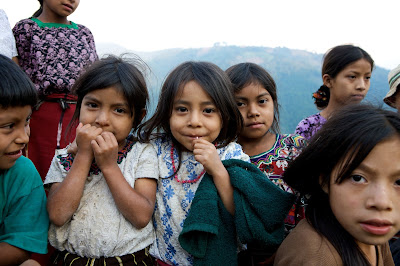

WE: Is there anything else you'd like to share with us?
SD: Just my gratitude. We are, I believe, at a critical time in human history.
The global connections that exist between nations are such that our ability
to collectively invest in sustainable solutions to some of the most dire
problems on the planet are more important than ever before. The challenges of resource consumption, the environment, food security, disease, extreme poverty -- these challenges must be met by unique and lasting solutions...not by quick fixes and temporary approaches. The work of Agros
International is, I believe, one important voice in this larger conversation. Further, the families in Central America and Mexico who are learning to dream again have an even more important voice in this conversation, and I'm grateful for being able to share a bit of what we are accomplishing together.
Thank you for allowing us the privilege of sharing this life transforming
work.

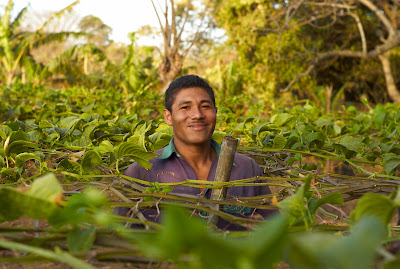
WE: Thank you, Sean, for sharing Agros International with us. It is incredible, life-changing, important work - and so very inspiring.
For more information, please see:
http://www.agros.org
Photos courtesy and copyright of:
Ira Lippke (www.iralippke.com)
Don Mirra (www.donmirra.com)
Trevor Snapp
Sean Dimond (www.agros.org)
All rights reserved.
-

- Log in to post comments


















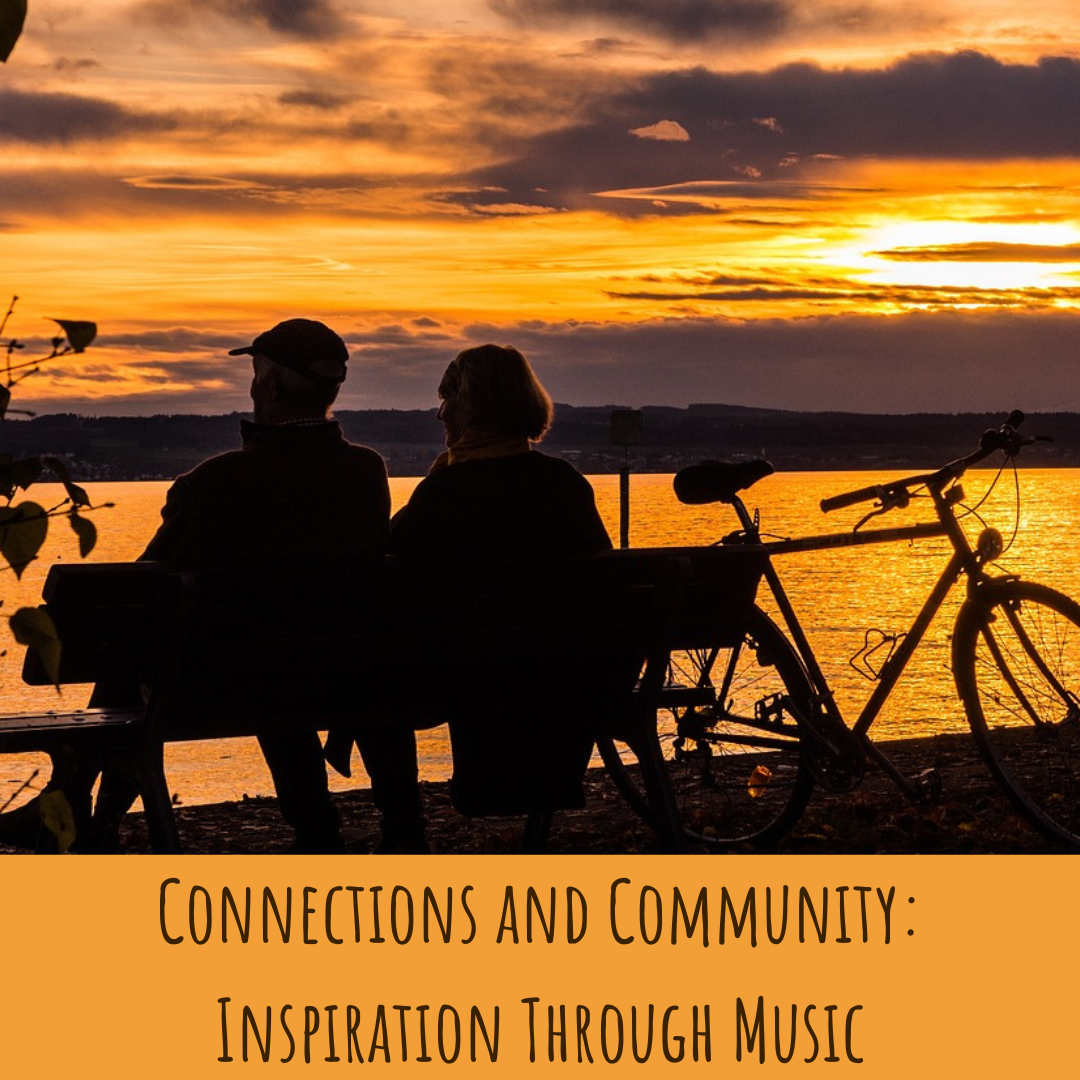

Sam Pounder
Wonderful interview. Thank you for bringing this noble cause to my attention. It is one of the reasons I am such a fan of WE.com
Dr. Debra Payne
Thanks for this one! What a great interview, and I love the music!
Debra Payne Chaparro, PhD
anne_ward
A wonderful organization. The photos are amazing.
Glinda
Thank you for teaching me about Agros International. They are making a difference in this world! I plan to go visit their site and see what I can do to help.
familyadventure...
Jessie,
This was really well done! Agros reminds me of the work of Greg Morgenstern, although they approach poverty through estabishing fields while Greg builds schools. That would also be a great interview. His book is very high profile right now.
Have a great day. I look forward to learn more about Agros and the impact it has on Latin America
Bridget Smith
Founder Family Adventure Guidebooks
Author, The Unauthorized Guide to Legoland, California
www.familyadventureguidebooks.com
Agros
Thanks for including Agros on this wonderful day for Wandering Educators -- congrats on your one year anniversary!
Jonathan Grant
These are the types of articles that keep me coming back to Wandering Educators. Thanks for doing this.
lyndilu
Seeing this story really makes one stop and appreciate what we have right in our own back yards. I'd encourage everyone to do something to help, no matter how much or how little. Anything will help.